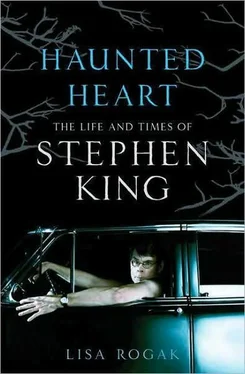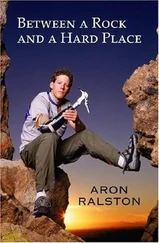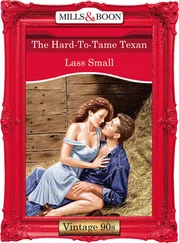Hanging on one of the walls of the parish hall was a poster with the words METHODISTS SAY NO, THANK YOU. At Sunday school, children would dutifully learn their Bible verses and recite them from memory. For their efforts, they were rewarded with unadorned miniature crucifixes that the children could paint as they desired, deciding for themselves whether to add the bloody thorns on the hands and feet.
“I listened to a lot of fire and brimstone as a child,” Steve said. “Part of me will always be that Methodist kid who was told that you were not saved by work alone, and that hellfire was very long.” One story he heard that described the afterlife was about a pigeon that flies to a mountain made of iron to rub its beak on the metal only once every ten thousand years, and the time it took the mountain to erode is the equivalent of the first second of hell. “When you’re six or seven years old, that kind of stuff bends your mind a little,” he said, readily admitting the images from church have long influenced his stories and novels.
Stephen attended fifth and sixth grades in the Center Grammar School, a one-room schoolhouse a few doors down from his own. Because he had repeated the first grade, he was not only the biggest kid in the class but also the oldest. Despite his childhood illnesses, he’d shot up to a height of six foot two by the age of twelve.
West Durham was so small that it lacked a library, but once a week the state sent the Bookmobile to the town, a mobile library in a big green van. To Steve, it was a vast improvement over the library in Stratford, Connecticut, where he had only been allowed to check out books from the children’s section, most often Nancy Drew and Hardy Boys novels. With the Bookmobile, patrons could take out three books a week, and the kids could borrow books from the adult section. While browsing the adult shelves, Steve discovered several police-procedural novels by Ed McBain. A few pages into the first one he took home, a scene described the cops interrogating a woman standing in the doorway of her slum apartment dressed in nothing more than a slip. The police turn away and tell her to go get dressed, but instead she pushes her breast toward them, saying, “In your eye, cop!”
“Immediately something clicked in my head,” said Steve. “I thought, that’s real, that could really happen, and that was the end of the Hardy Boys and all juvenile fiction for me.”
From McBain, he progressed to Edgar Allan Poe and John D. MacDonald, running through the classics of horror, crime, and speculative fiction. Soon he was always the first in line when the Bookmobile rolled back into town.
As he had done back in Connecticut, Steve spent many Saturday afternoons sitting in the dark at the movies, and the Ritz Theater in Lewiston was one of his regular haunts. Since he was so tall for his age, the ticket clerk tried to charge him the adult price. He got in the habit of tucking his birth certificate into his pocket so he could verify his age.
As time passed, Steve began to retreat more into his books and movies. Even though the family was together with little chance of splitting up again, life at home was harder than in Connecticut, especially for Ruth.
For nearly a decade, the Kings had lived on very little cash, subsisting on barter and whatever their relatives could spare—a bag of groceries here and some hand-me-down clothes there. In summers, the farm’s well would inevitably dry up and they’d have to tote water from Ethelyn’s house a half mile away. Their own house had no bath or shower, so in the winters the boys would take a bath at their aunt’s house, then walk home through the snow, their bodies still steaming.
Steve would later compare their life to a sharecropping arrangement, where his mother worked long hours for little reward. “Those were very unhappy years for my mother,” he said. “She had no money, and she was always on duty. My grandmother had total senile dementia and was incontinent.” Ruth used an old wringer washing machine to do the laundry, and when she hung the diapers on the clothesline in winter, her hands started to bleed because the combination of the lye and the cold water dried out her skin. She had still not learned to drive a car and so was always dependent on others around her who did.
An unspectacular intimacy with death no longer so familiar to most Americans also characterized Stephen’s formative years. This became especially true once the Kings moved back to Durham. In rural Maine of the 1950s and ‘60s, families still dealt with their dead at home, instead of relying on a funeral home. Besides, most residents didn’t have the money to pay for an undertaker. Steve had seen a number of dead bodies—mostly elderly relatives laid out at his friends’ homes—along with the body of a man who had drowned in a pond in Durham.
In the late 1950s, the saga of Charles Starkweather captured the attention of the American public. With his fourteen-year-old girlfriend, Caril Fugate, the nineteen-year-old Starkweather went on a rampage, killing eleven people in Nebraska and Wyoming—including Fugate’s mother, stepfather, and sister—over two months in the winter of 1957–58. Starkweather was caught, tried, and executed in 1959, and Fugate was sentenced to life in prison and paroled in 1976.
Young Steve was fascinated and revolted by the serial killer and started to keep a scrapbook of newspaper clippings about Starkweather’s exploits. He’d sit for hours, staring at the photos of the condemned killer, trying to figure out where he’d gone wrong. As usual, Ruth thought it wasn’t something her eleven-year-old son should be following so closely.
“Good God, you’re warped,” she told him when she found his scrapbook. But as he explained to his mother, he studied Starkweather so that if he ran into someone with the same deadened eyes on the street, he’d be able to recognize the killer and stay far away. But he realized even at that early age something else was at play.
“There’s always the urge to see somebody dead that isn’t you,” he said. “That urge doesn’t change because civilization or society does, it’s hardwired into the human psyche, a perfectly valid human need to say, ‘I’m okay,’ and the way I can judge that is that these people are not.
“To me, Charles Starkweather was totally empty. I was examining the human equivalent of a black hole, and that’s what really attracted me to Starkweather. Not that I wanted to be like him, but I wanted to recognize him if I met him on the street and get out of his way. You could see it in his eyes, to a degree. There was something gone in there. But I also understood that it was in me, and it was in a lot of people.”
But something else was behind his fascination with Starkweather. “There was a little voice inside my head that said, ‘You’re gonna be writing about people like this your whole life, so here’s the starting line, GO!’ ”
On the surface, Steve’s childhood looked similar to other boys’ lives in the 1950s: he hung out with his friends, tinkered with cars, and listened to rock and roll. The first record he owned was an Elvis Presley 78 with “Hound Dog” on the A side and “Don’t Be Cruel” on the flip side. He wore out both sides of the record playing it over and over. “It was like finding something that was very, very powerful, like a drug,” he said. “It made you bigger than you were. It made you tough even if you weren’t.”
But once he became a teenager, he stood out for being just a little bit eccentric. For instance, he’d head out to spend the afternoon at a friend’s house and show up in his bedroom slippers, probably because so much was going on in his head that he forgot to change into shoes.
He often felt like an outcast, though he had learned at an early age to keep his mouth shut about it. “I kept that part of myself to myself,” he said. “I never wanted to let anybody get at it. I figured they’d steal it if they knew what I thought about certain things. It wasn’t the same thing as being embarrassed about it, so much as wanting to keep it and sort of work it out for myself.”
Читать дальше












